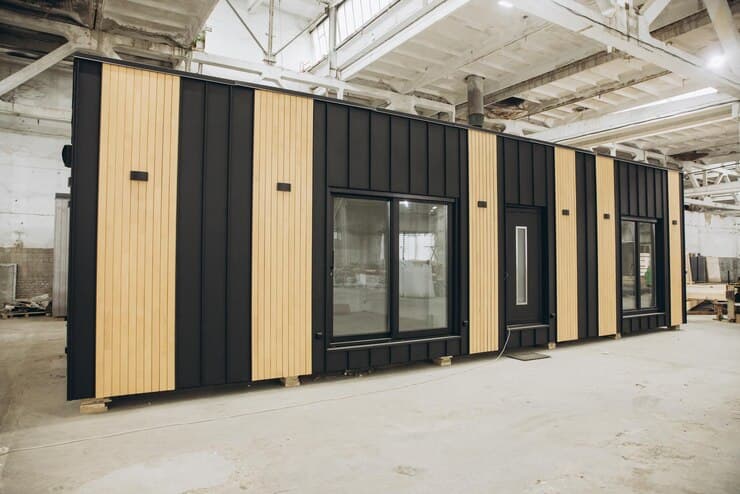In a competitive business environment, companies are continually seeking ways to optimize resources, reduce costs, and improve efficiency. Traditional office construction can be expensive, time-consuming, and disruptive to operations. Modular office buildings have emerged as a practical alternative, offering rapid construction, flexibility, and cost-effective solutions. These structures allow businesses to create functional, professional workspaces without the delays and high expenses associated with conventional buildings. This article explores how modular office buildings can save businesses both time and money while supporting long-term growth.
Understanding Modular Office Buildings
What Is a Modular Office Building?
A modular office building is a prefabricated structure constructed in factory-controlled environments and then transported to a site for assembly. Each unit, or module, is designed to integrate seamlessly with others, forming a complete building that meets operational and regulatory standards. Unlike traditional construction, which often involves lengthy timelines and unpredictable costs, modular office buildings provide a streamlined approach to workplace development.
Features of Modular Office Buildings
Modular office buildings include pre-installed electrical systems, plumbing, insulation, and HVAC options. They can be customized with open-plan layouts, private offices, meeting rooms, or specialized spaces. This adaptability ensures that modular office buildings can meet the diverse needs of businesses across industries.
Time Savings with Modular Office Buildings
Rapid Construction
One of the most significant advantages of a modular office building is speed. While traditional offices may take several months to complete, modular construction allows for simultaneous off-site fabrication and on-site preparation. This parallel process can reduce construction timelines by up to 50 percent, enabling businesses to occupy their offices sooner and minimize downtime.
Minimizing Disruption to Operations
Traditional construction projects in active business locations can disrupt daily operations, generate noise, and create safety hazards. Modular office buildings reduce on-site construction activities, allowing businesses to continue operations with minimal interference. Quick assembly ensures that offices are functional and ready for use in a fraction of the time.
Flexibility in Design and Expansion
Modular office buildings are inherently flexible. Companies can expand by adding modules as their workforce grows or reconfigure existing spaces to accommodate changing operational needs. This adaptability saves time that would otherwise be spent on major renovations or relocation.
Cost Savings of Modular Office Buildings
Lower Construction Costs
Traditional construction involves significant labor, material, and site management costs. Modular office buildings reduce expenses by standardizing production in controlled factory environments. This approach minimizes waste, labor hours, and site delays, making modular offices a more affordable alternative for businesses.
Reduced Maintenance and Operational Costs
Modular office buildings are designed with durable materials and precise engineering, resulting in lower maintenance costs over time. High-quality construction reduces the likelihood of repairs, while energy-efficient systems and insulation lower utility expenses.
Investment Efficiency
By reducing both upfront construction costs and ongoing operational expenses, modular office buildings offer businesses a high return on investment. The ability to relocate or repurpose modular units further maximizes value, allowing companies to adapt to evolving needs without committing to permanent structures.
Practical Applications for Businesses
Construction and Project Sites
Modular office buildings are particularly useful for construction and project management offices. They provide administrative space, meeting areas, and staff facilities directly on-site, saving travel time and enhancing operational efficiency. Once a project is complete, the modular offices can be relocated to the next site, optimizing resource use
Corporate Workspaces
Businesses seeking flexible corporate office solutions benefit from modular office buildings due to customizable layouts, fast setup, and reduced costs. Companies can create open-plan areas, private offices, and collaborative spaces to support productivity without waiting for long construction cycles.
Healthcare, Education, and Public Services
Modular office buildings are increasingly used in healthcare, education, and public service sectors. They provide temporary or permanent administrative spaces, classrooms, or clinic facilities. The rapid deployment and scalability of modular offices ensure these institutions can meet fluctuating demands efficiently.
Sustainability and Efficiency
Environmentally Friendly Construction
Modular office buildings support sustainability initiatives by reducing construction waste and energy consumption. Factory production allows precise material usage, while modular units can often be reused or repurposed, further minimizing environmental impact.
Energy Efficiency
Modern modular office buildings incorporate energy-efficient designs, including insulation, HVAC systems, and lighting solutions. This helps businesses lower energy costs and reduce their carbon footprint, aligning with sustainable operational goals.
Planning and Implementation Considerations
Site Preparation
Proper site preparation is essential for smooth modular office building assembly. Considerations include ground leveling, utility connections, and accessibility. Once prepared, the site can receive modular units quickly, minimizing delays and ensuring efficient installation.
Transportation and Assembly
Transporting and assembling modular office buildings requires careful planning, particularly for larger projects. Modules are designed for easy handling and on-site connection, allowing for fast and safe construction even in urban or constrained areas.
Compliance and Safety
Modular office buildings comply with local building codes and safety regulations, including structural, fire, and electrical standards. This ensures businesses have safe and functional workspaces without compromising quality or durability.
Future of Office Spaces
As businesses continue to seek flexible, cost-effective, and sustainable office solutions, modular office buildings are becoming increasingly popular. Their ability to save time, reduce costs, and adapt to changing requirements makes them an ideal choice for companies across industries. By embracing modular solutions, organizations can optimize operations while providing modern, professional workspaces for employees.
Conclusion
Modular office buildings offer a practical and efficient solution for businesses looking to save time and money. Their rapid construction, flexibility, and reduced operational costs make them an attractive alternative to traditional office development. With the ability to expand, relocate, and customize layouts, modular office buildings provide long-term value and adaptability for any organization.
Halletts Spaces is dedicated to delivering high-quality modular office building solutions that combine speed, efficiency, and cost-effectiveness to help businesses thrive in dynamic work environments.





Comments